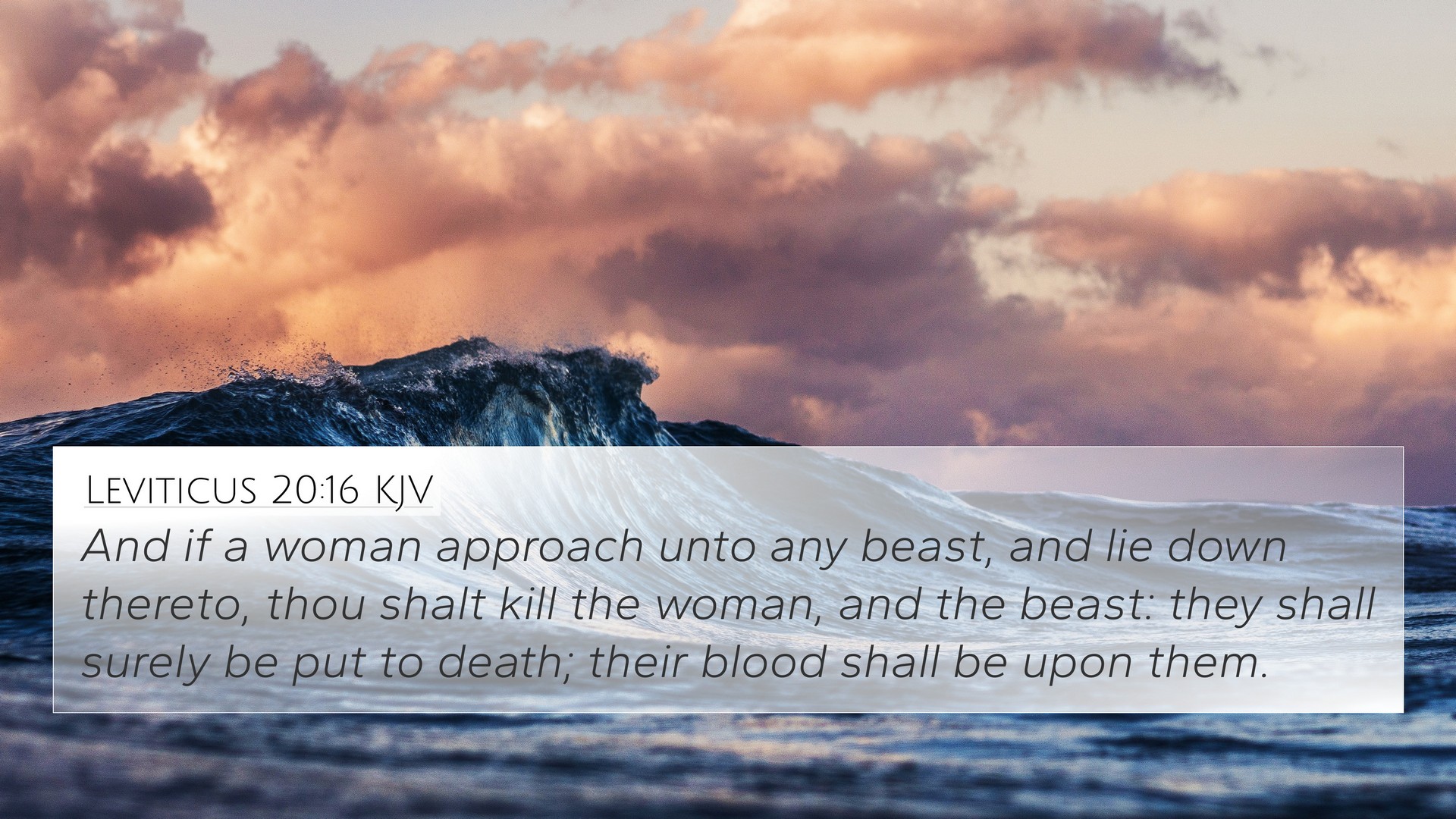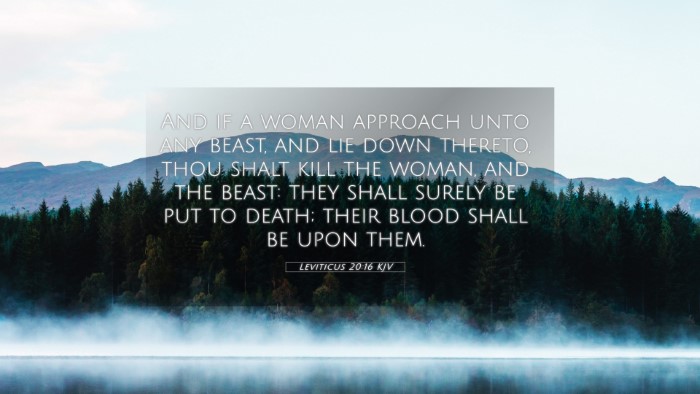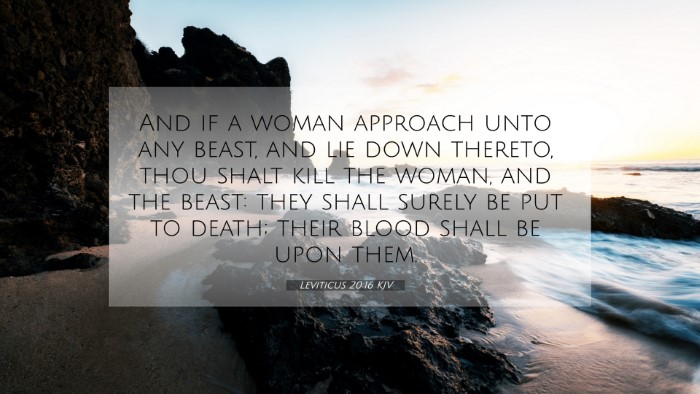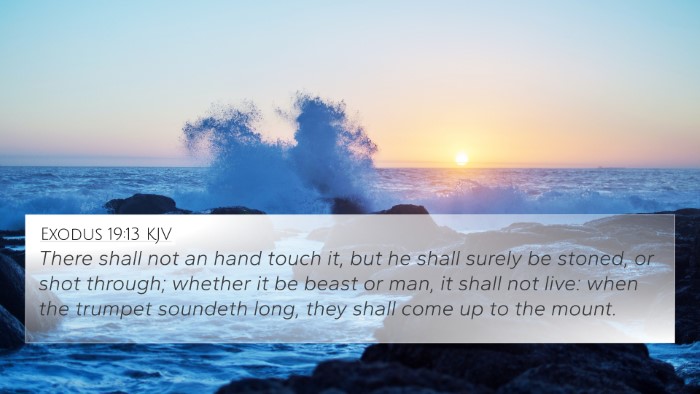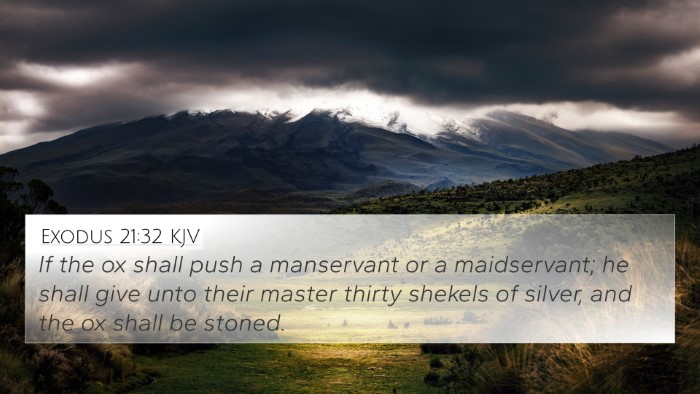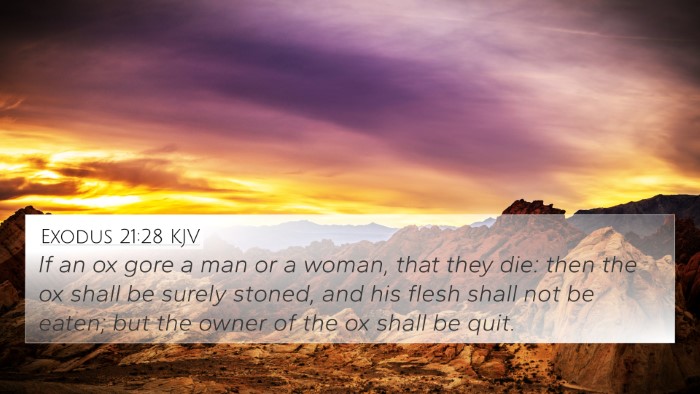Understanding Leviticus 20:16
Verse: "And if a woman approach unto any beast, and lie down thereto, thou shalt kill the woman, and the beast: they shall surely be put to death; their blood shall be upon them."
Overview
Leviticus 20:16 deals with the severe laws concerning sexual immorality and bestiality, laying down a strict mandate from God regarding behaviors that are considered abominable. This verse highlights not just the act itself, but underscores the seriousness with which such acts are treated within the Israelite community.
Commentary Insights
Matthew Henry's Commentary
Matthew Henry emphasizes the gravity of sexual conduct as laid out in the Law of Moses. He notes that this commandment serves to protect the sanctity of relationships ordained by God. By forbidding such acts, the community is reminded of the access to God's mercy and sanctity within their covenantal relationships.
Albert Barnes' Notes
Albert Barnes highlights the implications of this law on the community's moral fabric. He points out that bestiality was not merely a personal sin but had community-wide repercussions. The law sought to maintain purity and reflect the divine order that governs human relationships. The extreme punishment prescribed serves as a deterrent against violations of this nature.
Adam Clarke's Commentary
Adam Clarke provides an analytical view, explaining that the verse illustrates the abomination of mingling human sexuality with animals, which was a severe violation of the natural order. He reflects on the importance of these laws in fostering a society that mirrors divine holiness and separation from the perverse practices that may have been present in neighboring cultures.
Thematic Connections to Other Scriptures
This verse connects with several other scriptures that elucidate the themes of sexual morality, holiness, and divine judgment. Below are key references:
- Exodus 22:19: Forbids sex with animals, reinforcing the illegality and immorality of such acts.
- Genesis 1:24-25: Discusses God's creation of animals and humans, emphasizing intended boundaries.
- Deuteronomy 27:21: States curses upon those who practice such abominations.
- Romans 1:24-27: Discusses the consequences of rejecting God's order, including unnatural lusts.
- 1 Corinthians 6:9-10: Lists the unrighteous and their fate, reiterating the idea of accountability.
- Hebrews 13:4: Affirms marriage as honorable, contrasting it with the solemn omnipresence of divine judgment upon immorality.
- Ephesians 5:3: Exhorts against sexual immorality, aligning with the moral standards set in Leviticus.
The Importance of Cross-Referencing
By undertaking a Bible verse cross-referencing examination, one can gain a comprehensive understanding of scriptural themes. Tools for Bible cross-referencing help illuminate connections between verses, showcasing how the Old and New Testaments converse.
Engaging in Bible cross-reference studies enables believers to appreciate the depth of God's commandments, often finding that these laws are intertwined within the greater narrative of redemption found throughout scripture.
Conclusion
Leviticus 20:16, while a historical law, carries profound implications for understanding moral righteousness, societal standards, and the seriousness of sin. Its cross-references deepen the comprehension of biblical themes of purity, the consequences of sin, and the steadfastness of God's character in calling people to holiness.
Further Exploration
To fully grasp the implications of this verse and similar teachings, a detailed comparative analysis of connected scriptures can be beneficial. This exploration not only enhances understanding but also encourages one to approach Scripture with a mindset aware of the sacred boundaries set forth by God.
